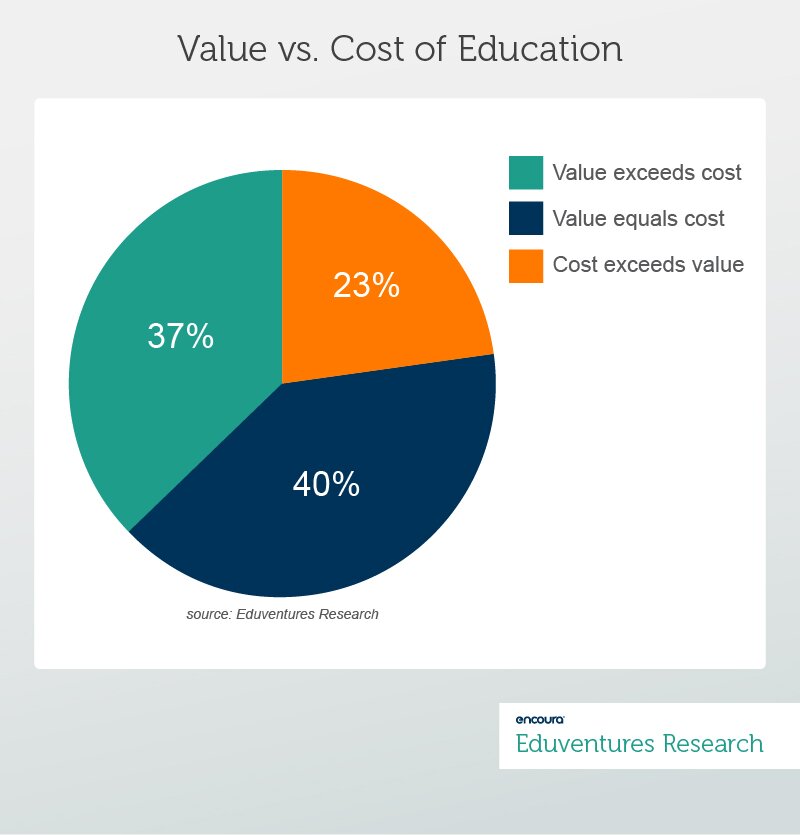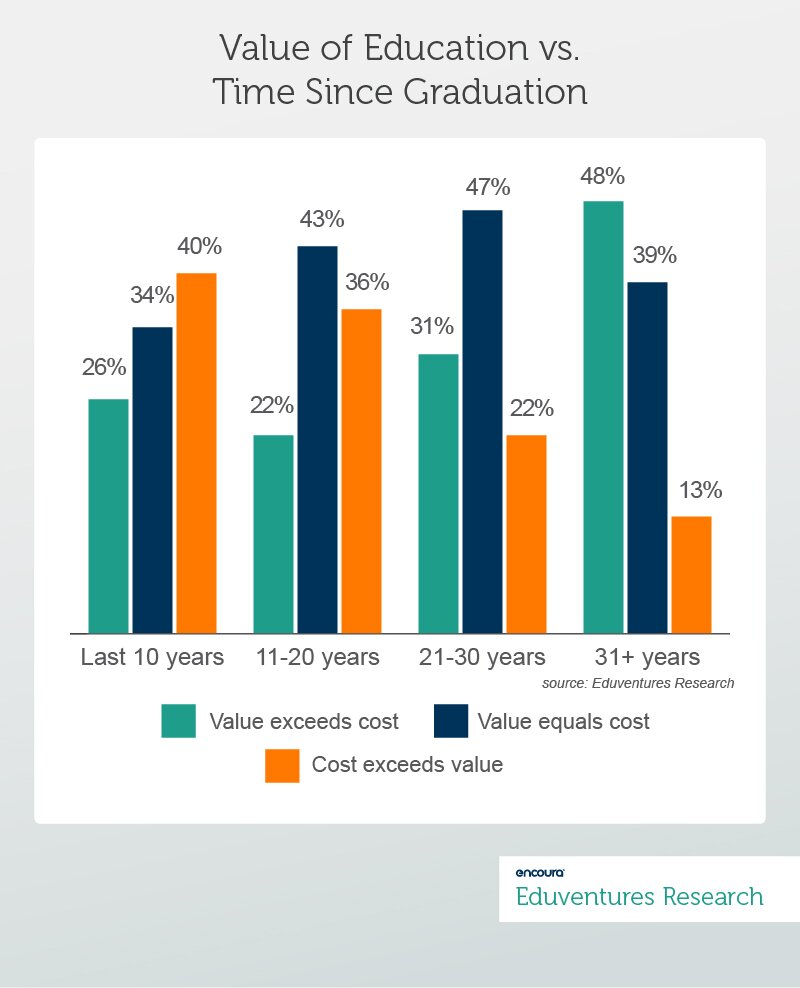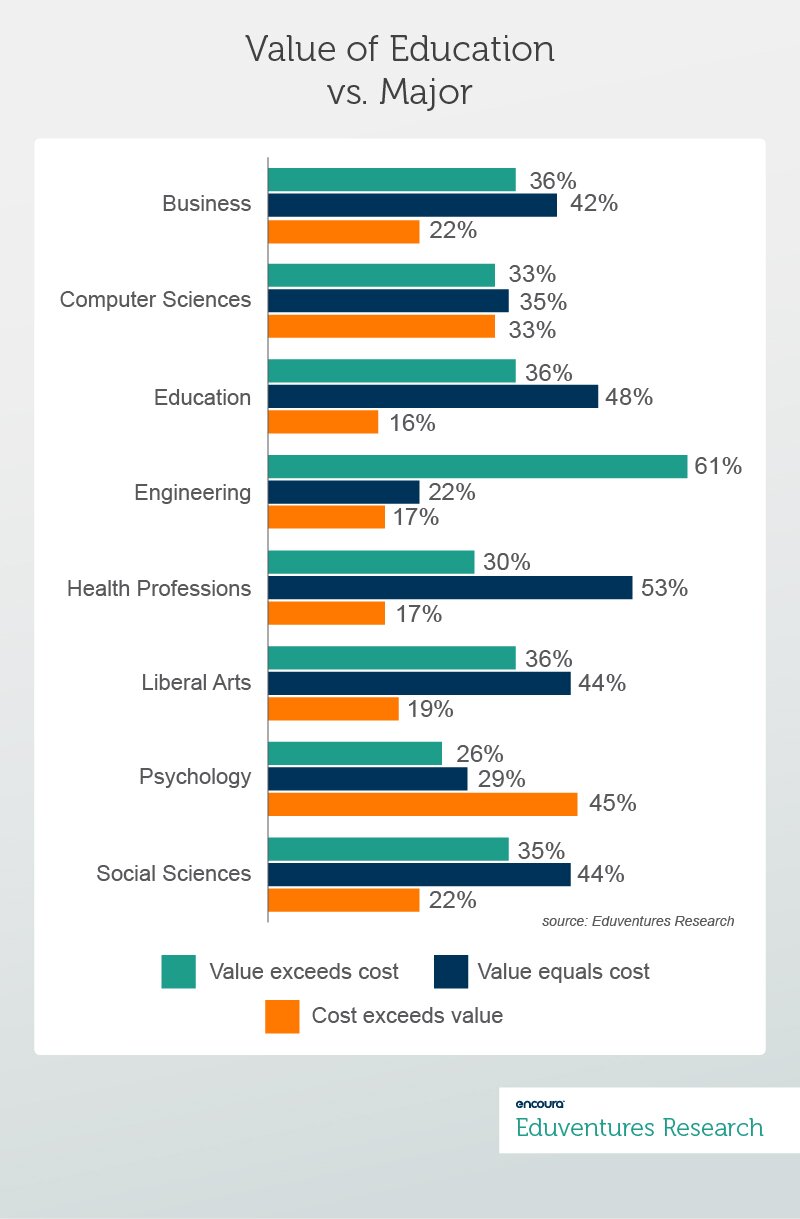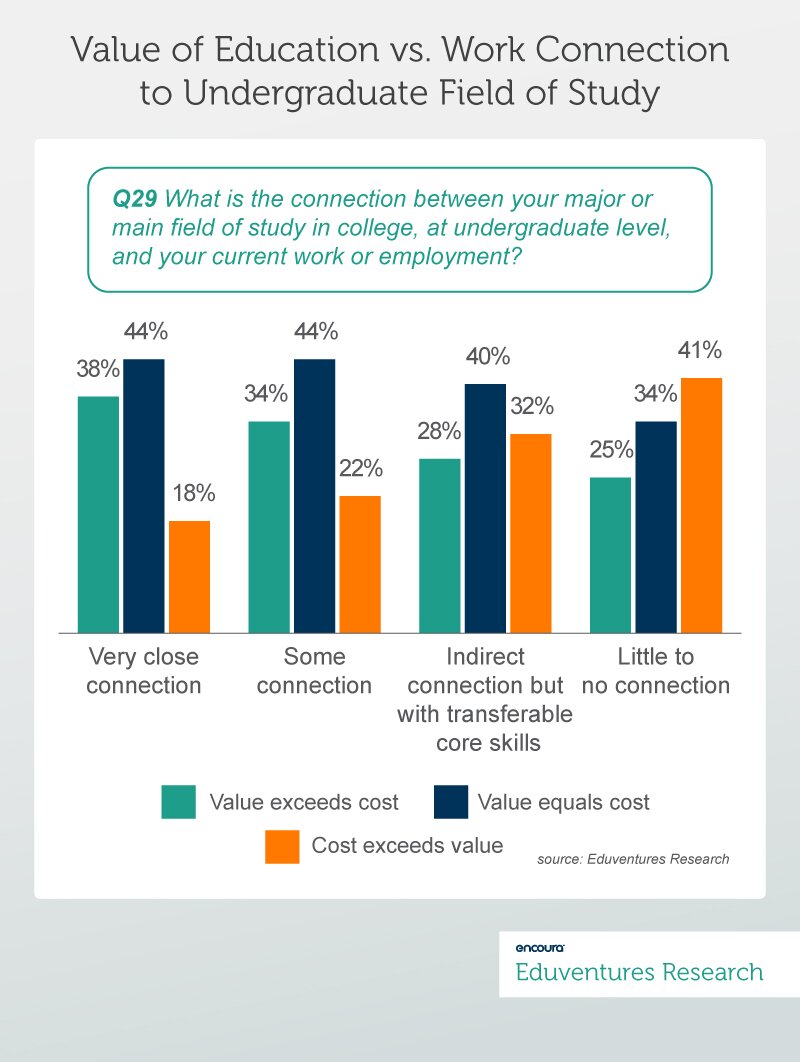Follow Karen and Johanna @karensvarczkopf and @johannatrovato
Ongoing debate about the cost of higher education leaves many wondering about the value of a college degree. The public wants lower costs and clearer career outcomes. The Pew Research Center reports that 50% of Americans believe college should focus on job skills. Richard Vedder and Justin Strehle, in The Wall Street Journal's commentary, argue that the earnings advantage for a bachelor’s degree has diminished – net median earnings are in decline and too many college graduates are working non-graduate jobs.
What do alumni think of their college education? Was it worth it? Eduventures’ 2017 Outcomes Survey explores the perspectives of over 1,600 college graduates of all ages.
We asked graduates if their degree was worth the money. Among respondents with at least a Bachelor’s degree (1,035), most believe the value of their education equals or exceeds the cost—37% of respondents believe the value exceeds the cost, 40% believe the value equals the cost, and 23% believe the cost exceeds the value. See Figure 1.
Adult Learner Demand
Regrets, I’ve had a few… Graduates’ perceptions of their education’s value.
Related Posts

Never Miss Your
Wake-Up Call
 Figure 1.
Figure 1. Figure 2.
Figure 2. Figure 3.
Figure 3. Figure 4.
Figure 4.